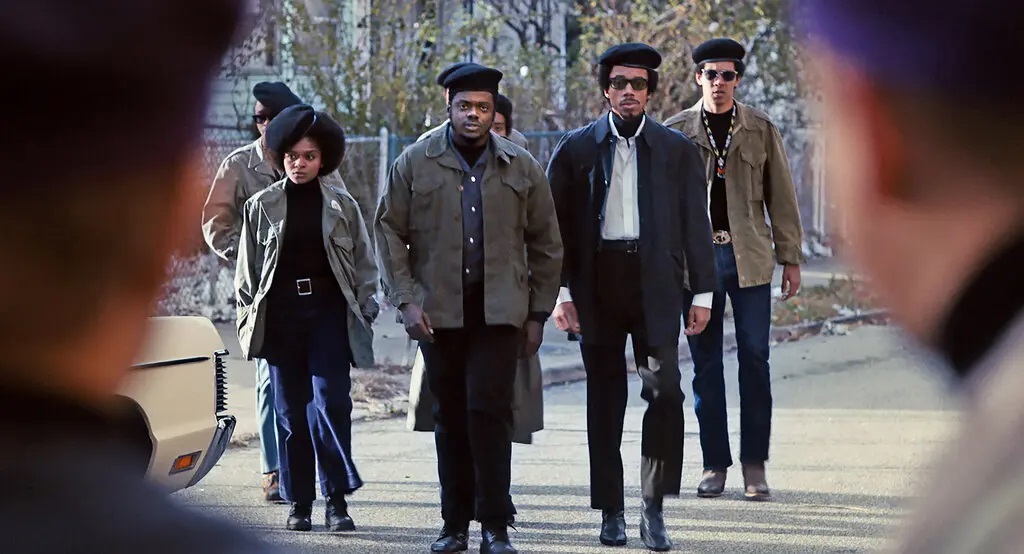
Often held up as heroes in pop culture, the FBI spent much of its history as the private police of FBI director J. Edgar Hoover. While it may be morbidly fun to talk about the time Hoover tried to use the FBI to frame Charlie Chaplin for sex trafficking because of Chaplin’s leftist films and Democratic fundraising, cases like that of Fred Hampton Jr. are tragedies at their finest. The Indiana Black Panther Party leader was just 21 years old when he was illegally assassinated by the FBI. Hoover was afraid of Hampton’s multi-racial coalition and its ability to disrupt the Nixonian Republican party’s national strategy.
While it was the image of the Black Panthers holding rifles that the FBI used (and others still use) to stir up white fear and political cover for the assassination, Judas and the Black Messiah (2021) shows how it was free education and food for the poor that they truly feared, as the Nixon (and Reagan) era political strategy of the time was built on stoking fear of a lower class kept desperate.
This Oscar-winning film from director Shaka King is gripping, moving, and infuriating. It explores the qualitative moral difference between crimes of desperation and crimes of oppression, and how the last begets the former. LaKeith Stanfield plays Bill O’Neal, a con man who’s caught by Jesse Plemon’s Roy Mitchell, and forced under threat of arrest to become the titular Judas to Daniel Kaluuya’s Oscar-winning Fred Hampton Jr.. It remains a singular film. — Andrew J. Eisenman (2024)
Arts & Faith Lists:
2024 Top 25 Crime and Punishment Films — #18